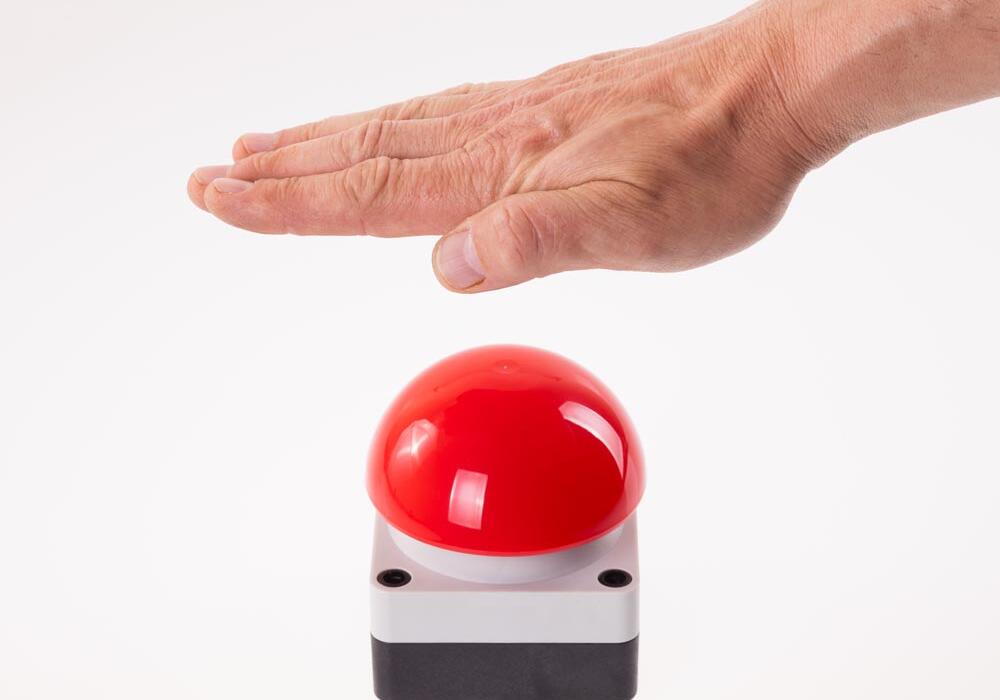It seems we really love a buzz word these days. I’m consistently amazed how easily a thing becomes a thing in the information stratosphere. We read or hear a term somewhere (Tik Tok, anyone?) and suddenly we’re repeating it without remembering where it came from. Now more than ever, engaging in critical thought about where our information comes from is super important. As you’ll come to know, I love busting chops over internet myths, and this month I’m taking aim at the whole ‘triggering’ thing.
It seems now we can barely scroll through a few social media posts without coming across a ‘trigger’ warning. These well-intentioned ‘heads-up’ signal potentially unpleasant content for those who’d like to scroll on if they want to avoid negative feelings when viewing the post. I’ve encountered these warnings on a variety of topics ranging from sexual assault and family violence to weight loss, pregnancy, or just general mental health. Whilst these cautions are always provided with the kindest of intentions for their readers, as a psychologist, here’s my problem: avoiding your ‘triggers’ doesn’t help you overcome them. In fact, it makes them worse.
Bear with me here. When it comes to treating trauma and post-traumatic stress disorder (PTSD), avoidance may feel like a natural coping strategy. In fact, there are situations in life when avoidance is a valid survival tactic. However, research consistently shows that avoiding triggers or distressing memories is not an effective long-term solution and can even make your feelings worse. Evidence-based approaches such as exposure therapy have proven to be far more effective in helping to process and overcome traumatic experiences. This research has been around for a long time and continues to be supported by new stuff.
The problem with avoidance in PTSD treatment
Avoidance is one of the core symptoms of PTSD. While steering clear of distressing reminders (like social media posts) may offer short-term relief, it often reinforces the fear and anxiety tied to those triggers. Over time, this can lead to a worsening of symptoms, and before you know it you can’t do normal things in your life anymore in case you encounter people, places or topics that trigger your distress.
Exposure therapy is a well-established psychological treatment that helps you confront your traumatic memories in a controlled and supportive environment. This technique gradually exposes you to reminders of the trauma, allowing you to process emotions safely and effectively. Even if your traumatic feelings are so intense you’re not ready to talk about them yet, alternative therapies including EMDR (eye movement desensitisation and reprocessing) can support you to gradually process these feelings without at first speaking about them. Think of it like letting the air out of a ballon (the balloon is your trauma!). You don’t want to ignore the balloon until it gets so big it bursts. Instead, if you let air out slowly in a controlled way, you can return the balloon to a manageable size.
The role of animal-assisted therapy in PTSD treatment
Animal-assisted therapy has shown promising results in alleviating PTSD symptoms. This therapeutic approach can provide emotional comfort, reduce anxiety, and improve social engagement. The presence of animals is thought to foster a sense of calm and safety, encouraging emotional openness in individuals who struggle to connect with traditional therapeutic techniques. At Barking Mad Company, we find that bonding with therapy animals can be a soothing experience when engaging in exposure to traumatic feelings.
Embracing your triggers
While avoidance may feel like a protective mechanism, it ultimately reinforces trauma’s hold on your mind. So next time you’re scrolling the socials, and you feel ‘triggered’, I encourage you to sit with that feeling of discomfort. Remember a psychologist can support you through a safe and guided process to regain long-term control over those triggers before they start controlling you.
References
- Mclean, Carmen & Levy, Hannah & Miller, Madeleine & Tolin, David. (2021). Exposure therapy for PTSD: A meta-analysis. Clinical Psychology Review. 91. 102115. 10.1016/j.cpr.2021.102115.
- O’Haire, M. E., Guérin, N. A., & Kirkham, A. C. (2015). Animal-Assisted Intervention for trauma: a systematic literature review. Frontiers in psychology, 6, 1121. https://doi.org/10.3389/fpsyg.2015.01121
